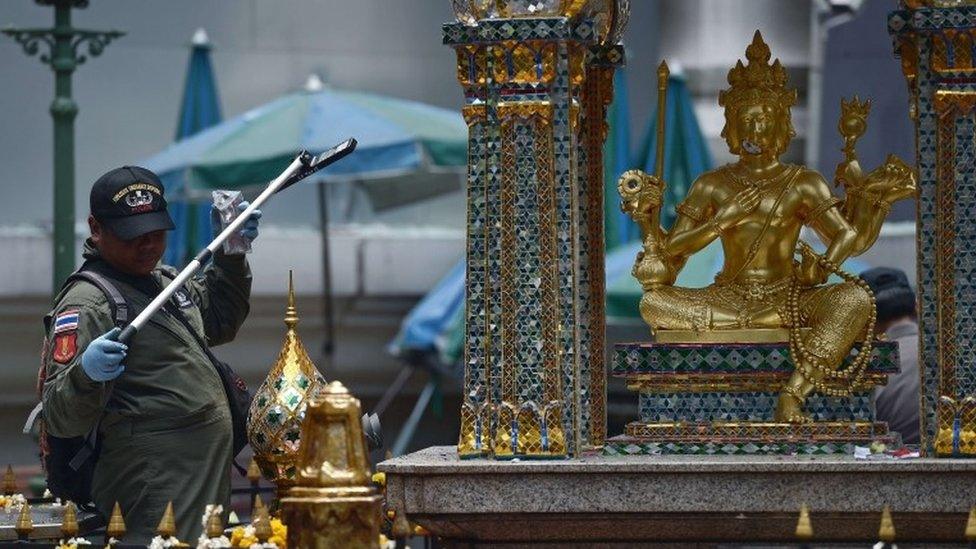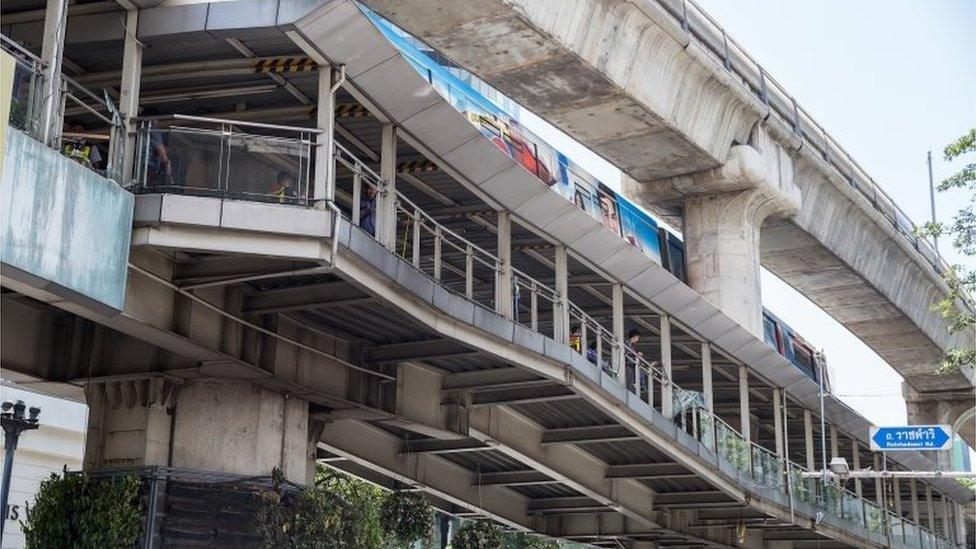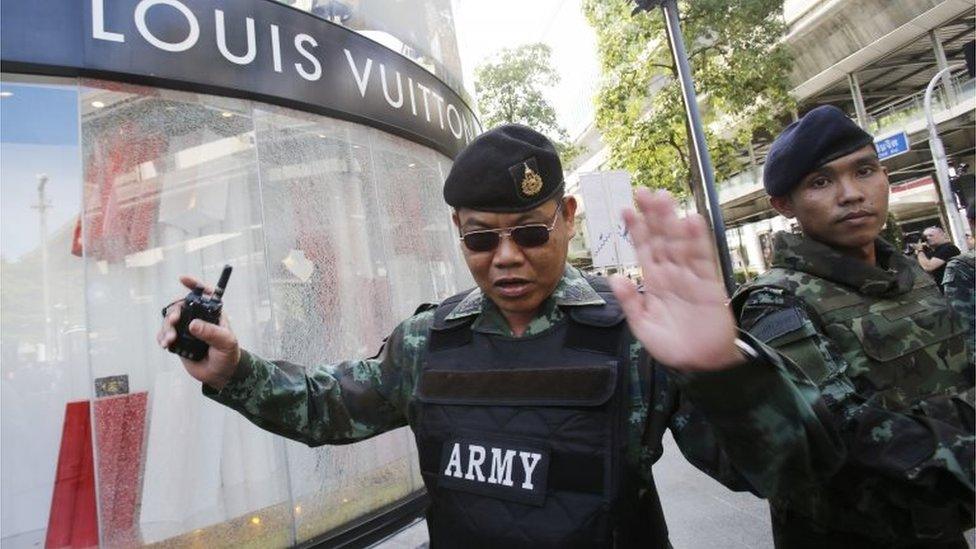Bangkok bomb: The messy theories behind the Thai attack
- Published

The Erawan shrine in central Bangkok is popular with tourists but also locals
The scale of the deadly bomb blast in Bangkok on Monday means it is unlikely to be motivated by domestic politics, writes analyst Pavin Chachavalpongpun. Here are some key considerations.
Shrine target provides a clue
Many may overlook the location of this attack, but ultimately it could prove crucial.
Erawan shrine is a popular spot, a top tourist attraction, and if one really wanted to cause maximum impact, this would be the obvious target.
But Thai culture is Buddhist and values religious tolerance. Such a religious location is not the kind of target any Thai rebel would choose, which suggests to me that those behind this attack may not be Thai.
Such an assertion is not to point fingers at other faiths, but merely to say that if this is about domestic politics, the Erawan shrine is not the place for that particular drama to play out.
Political violence is smaller-scale
The scale of the damage is too much, too great, too messy. If someone wanted to fulfil a domestic agenda, such carnage would be unnecessary.
Thailand has seen incidents in the past where someone might throw a grenade that injures a few people to get their political message across, but that is where it has generally ended.

There have previously been much smaller instances of political violence including at the same Ratchaprasong intersection
Theories about separatists and Uighurs
There are suggestions this could be related to the Muslim separatist conflict in southern Thailand, but the political violence has been limited to the three southern provinces - never the capital.
Others have mentioned the Muslim Uighur minority in China. They are unhappy that Thailand deported Uighur refugees back to China, where the minority complain of persecution, and might have wanted to punish the Thai state, the thinking goes. But we don't know enough at this point to support this theory.
However, international terror networks usually claim responsibility quickly after the incident, which hasn't happened in this instance so far.
And the Thai authorities on Thursday said the attack was "unlikely" to have been the work of an international terror group.
A failure of intelligence
One thing is clear - this is a failure of the government's intelligence work.
Security is very lax in Bangkok and authorities take it for granted that in a Buddhist country no-one would do such a thing.

The military government could take advantage of the situation to stay in power longer, Mr Chachavalpongpun says
It has been proven time and time again with anti-monarchy plots that there is no intelligence, simply imagination and scapegoats.
The Thai authorities continue to hint that there could be "internal elements" to the bomb, and seemed to suggest that the Red Shirt movement supporting exiled former leader Thaksin Shinawatra has been behind the attack.
The government could be taking advantage of this situation to assert its legitimacy and justify staying in power longer.
But none of the theories put forward are totally convincing on the scant information we have so far.
And the sheer scale of this attack threatens to dent confidence in public safety and investor confidence in the economy.
No international militant group has said they carried out the attack. But neither does it fit with the tactics adopted by domestic players.
If this attack does turn out to be part of a domestic political agenda, it would represent a radical departure.
Pavin Chachavalpongpun is associate professor at Kyoto University's Center for Southeast Asian Studies.